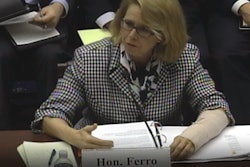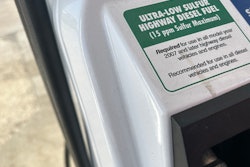The research used to confirm the benefits of last summer’s changes in truck drivers’ hours-of-service rule has significant problems, according to an analysis published Tuesday. The government agency that sponsored the study, however, says the revised HOS rule works as intended.
The American Transportation Research Institute says it has identified a variety of technical issues related to research design flaws, validity of measurement techniques and interpretations and data conflicts within and across the Federal Motor Carrier Safety Administration’s field study, released in January.
FMCSA collected fatigue measurements from 106 truck drivers during two duty cycles that included two restart breaks. FMCSA contends the results support the efficacy of the restart rule that went into effect July 1, 2013.
The trucking industry and some members of Congress immediately criticized the report. Congress also has recently asked the the Government Accountability Office to evaluate the studies done by FMCSA to create and back the rule.
The Technical Memorandum by ATRI, the research arm of the American Trucking Associations, documents the following issues with FMCSA’s study:
“FMCSA has heard loud and clear from carriers and drivers that the new rules are not advancing safety and are creating additional stress and fatigue on the part of truck drivers,” says Steve Rush, president of Carbon Express Inc. in Wharton, N.J. “ATRI’s analysis raises enough questions about FMCSA’s own study that should compel a comprehensive review of the entire rule.”
The trucking regulator continues to defend both the study and the rule.









